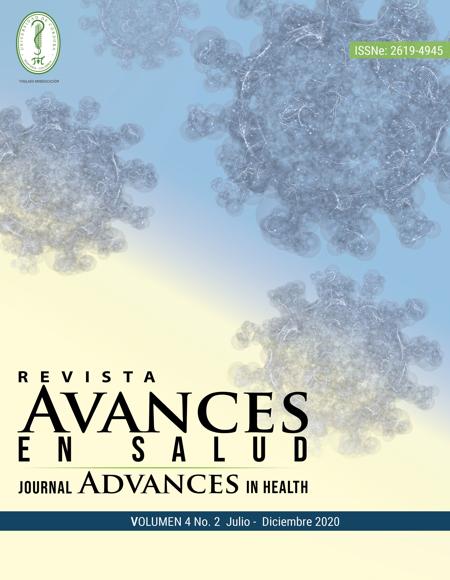Evaluación de conocimientos, prácticas y prevención de la encefalitis equina venezolana en zonas rurales de Córdoba
Evaluación de conocimientos, prácticas y prevención de la encefalitis equina venezolana en zonas rurales de Córdoba
Show authors biography
Introduction. Venezuelan equine encephalitis (VEE) is a zoonotic disease of viral origin, transmitted by mosquitoes, mainly of the Culex species. Mosquito-borne diseases represent a burden on society. However, they can be prevented through knowledge and good practices. Objective. To evaluate the level of knowledge and participation of the community in the control and prevention of VEE in some rural areas of the department of Córdoba. Materials and Methods. A cross-sectional analytical empirical study was carried out in 11 rural areas, with the application of a survey of knowledge, attitude and practice to establish a numerical measurement. The training phase was carried out in the villages of La Cristalina in Puerto Escondido and Campo Bello in Tierralta (Córdoba). Results. A total of 95 households were interviewed. The average age of the respondents was 52 years. 80.22% were men. The educational level reached was: primary 35.16%, high school 29.67%, technical 5.49% and university 4.40%. 39.56% of the population evaluated considered VEE to be a contagious disease, 47.25% as a fatal disease and 5.49% as a temporary annoyance. Conclusion. The population is not clear about the knowledge about VEE and the vector cycle, despite this the population studied has a good attitude and disposition to change strategies for the control of arboviruses.
Article visits 1098 | PDF visits
Downloads
1. Sharma A, Knollmann-Ritschel B. Current understanding of the molecular basis of Venezuelan Equine Encephalitis Virus pathogenesis and vaccine development. Viruses. 2019;11(2):164. doi: 10.3390/v11020164.
2. Kumar B, Manuja A, Gulati BR, Virmani N, Tripathi BN. Zoonotic viral diseases of equines and their impact on human and animal health. Open Virol J. 2018; 12:80-98. doi: 10.2174 / 1874357901812010080
3. Mesa FA, Cárdenas ZA, Villamil JLC. Las encefalitis equinas en la salud pública. 2005. Departamento de Salud Animal, Facultad de Medicina Veterinaria y de Zootecnia, Universidad Nacional de Colombia
4. Aguilar PV, Estrada-Franco JG, Navarro-López R, Ferro C, Haddow AD, Weaver SC. Endemic Venezuelan equine encephalitis in the Americas: hidden under the dengue umbrella. Future Virol. 2011; 6(6): pp. 721–740. doi:10.2217/FVL.11.5
5. Instituto Colombiano Agropecuario. Dirección Técnica de Vigilancia Epidemiológica. Subgerencia de Protección Animal. Sanidad Animal-2016. Disponible en: https://www.ica.gov.co/getattachment/6d2f08b5-da5d-49a2-ad3c-ef3ccfe06df7/Boletin-2016-Sanidad-Animal.aspx
6. Guzmán C, Calderón A, Martinez C, Oviedo M, Mattar S. Eco-epidemiology of the Venezuelan equine encephalitis virus in bats of Córdoba and Sucre, Colombia. Acta Trop. 2019;191:178-184. doi:10.1016/j.actatropica.2018.12.016
7. Agudelo-Suárez Ángela N. Villamil-Jiménez Luis C. Políticas de zoonosis en Colombia: del Código Sanitario a la salud ambiental. Rev. Salud Pública. 2018; 20(1): 34-44.
8. Organización Mundial de Sanidad Animal. Información sobre las enfermedades de los an
imales acuáticos y terrestres. Disponible en: https://www.oie.int/es/sanidad-animal-en-el-mundo/enfermedades-de-los-animales/
9. Instituto Nacional de Salud. Vigilancia y análisis del riesgo en salud pública protocolo de vigilancia en salud publica encefalitis equinas, 2016. Disponible en: http://www.saludpereira.gov.co/medios/Encefalitis_Equinas_PROTOCOLO2016.pdf
10. Instituto Colombiano Agropecuario. Resolución No. 1026 de 1999. Por la cual se establecen medidas sanitarias para la prevención y control de la Encefalitis Equina Venezolana. Disponible en: https://www.ica.gov.co/normatividad/normas-ica/resoluciones-oficinas-nacionales/resoluciones-derogadas/resol-1026-de-1999.aspx
11. Khanal VK, Pyakurel P, Uprety S, Rayamajhi RB, Gupta PP, Ghimire A, et al. Mosquito borne diseases related knowledge, practice and behaviour of people in rural and peri-urban areas of Eastern Nepal. Health Renaiss. 2015;12(2): 92-8.
12. Dhakal S, Stephen C, Ale A, Joshi DD. Knowledge and practices of pig farmers regarding Japanese encephalitis in Kathmandu, Nepal. Zoonoses Public Health. 2012;59(8): 568-574.
13. Pandit N, Patel Y, Bhavsar B. Awareness and practice about preventive method against mosquito bite in Gujarat. Health Line. 2010;22(1):16-20.
14. Shrestha M, Gupta R, Gautam I. Epidemio-entomological study of Japanese encephalitis in Bhaktapur District, Nepal. J Inst Sci Technol. 2015;20(1):112-118.
15. Mackenzie JS. Emerging zoonotic encephalitis viruses: Lessons from Southeast Asia and Oceania. J Neurovirol. 2005;11(5):434-440.
16. Yadav S, Ahmad S. An assessment of community participation in control and prevention of Japanese Encephalitis in rural Uttar Pradesh. Int J Med Sci Public Health. 2017; 6(11): 1614-1619.
17. Boratne AV, Jayanthi V, Datta SS, Singh Z, Senthilvel V, Joice YS. Predictors of knowledge of selected mosquito-borne diseases among adults of selected peri-urban areas of Puducherry. J Vector Borne Dis. 2010;47(4): 249-256.
18. Dhaduk KM, Gandha KM, Vadera BN, Mehta JP, Parmar DV, Yadav SB. A community level KAP study on mosquito control in Jamnagar district. Natl J Community Med. 2013;4(2):321-328.







